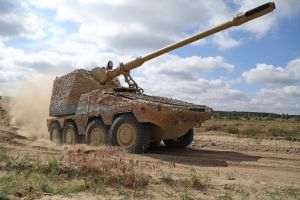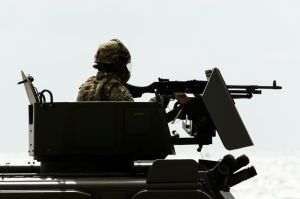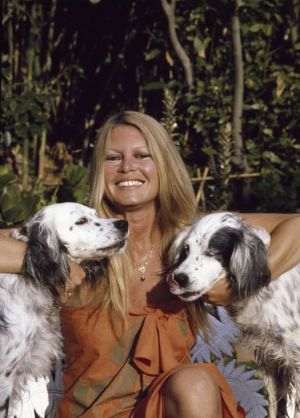
The Russian influence on our political choices has yet to be proven, as the Romanian special services fumble with laughable details - did Călin Georgescu talk to Horaţiu Potra at the horse stable, or did he just drink tea in the adjacent room?
- "What were you doing in Ciolpani?"
- "Sitting in a chair."
Our secret services have shoved themselves into the corner of global ridicule - and even if it's proven that Georgescu talked to Potra, so what? Was he not allowed to?
Horaţiu Potra is a free man.
Oh, but they found 15 kilograms of gold at his house - look, the Russians!
Yes, Horaţiu Potra owned a gold mine with Frank Timiş in Sierra Leone (we've known this for over sixteen years).
Meanwhile, the evidence of Russian influence on our political choices shines in plain sight: Călin Georgescu's "Food-Water-Energy" program may or may not prepare Romania for the coming of Jesus Christ, but it certainly prepares it for integration into Russia.
"Food-Water-Energy" is an essential piece that completes the Eurasian puzzle envisioned by Alexandr Dugin, an influential philosopher in Moscow and the president of the Eurasian Party - a movement advocating for the creation of a Eurasian superstate capable of countering American hegemony.
What follows will demonstrate this functional relationship, from part to whole, between Georgescu's program and Dugin's Eurasianism.
The program represents an essential but incomplete element, which becomes functional and meaningful within the broader framework of Eurasian theory.
Just like in a puzzle game.
• 1. Characteristics of Romania's Piece in Relation to the Eurasian Puzzle
Autonomy, but Incompleteness: The "Food-Water-Energy" program claims to offer a national solution for self-sufficiency, but elements of industrialization and technological development are treated superficially, with the focus placed on agriculture.
The gaps in the "Food-Water-Energy" program are filled by the Eurasian puzzle, which includes infrastructural modernization and technology transfer from the core of the Eurasian bloc (e.g., Russia).
Perfect Fit within the Whole - The program aligns with Eurasian objectives:
- The vital resources considered by Georgescu (food, water, energy) form the economic foundation for regional integration.
- The traditional values promoted by Georgescu complement the cultural and spiritual vision advocated by Dugin.
Connection with Other Pieces: Romania, through its specialization in agriculture, becomes a strategic supplier within the Eurasian bloc, functioning in a complementary role to the industrialized states of the whole.
• 2. Key Points of Alignment Between Georgescu's and Dugin's Theories
a. Security of Vital Resources: Georgescu's program identifies food, water, and energy as essential for sovereignty, a principle compatible with the Eurasian vision, which sees control over vital resources as a prerequisite for economic independence.
b. Traditional and Spiritual Values: Both promote the revival of organic communities and a return to cultural roots, aligning with the Orthodox spirituality within the Eurasian vision.
c. Critique of Globalism and Sovereignty:
- Dugin advocates for sovereign regional blocs as alternatives to Western globalism.
- Georgescu supports national economic independence, but this sovereignty can be integrated into the Eurasian framework.
d. Pragmatism of the Piece vs. the Ideology of the Puzzle:
- The "Food-Water-Energy" program seeks practical solutions (ecological agriculture, energy autonomy).
- Eurasianism provides the ideological and geopolitical foundation, outlining the role of pieces (e.g., Romania) within the Eurasian bloc.
• 3. Romania's Gaps and Completion Through the Eurasian Puzzle
Low Focus on Technological and Industrial Development: Georgescu's program gives limited attention to industrial modernization. This responsibility falls to the Eurasian bloc, which provides:
- Technological transfer and infrastructure.
- Integration of Romania into a complementary industrial system.
Specialization in Agriculture: Romania becomes the "granary" of the Eurasian bloc, a necessary specialization for regional economic complementarity, akin to the Valev Plan from the Soviet era.
Withdrawal from Global Value Chains: The HAE program proposes self-sufficiency and delocalization. Eurasianism compensates for this by reintegrating Romania regionally into the Eurasian bloc, based on resource and economic role distribution.
• 4. Complementarity Between Romania and Eurasian Russia in the Georgescu-Dugin Theory
The "Food-Water-Energy" program aims to provide a pragmatic and technical strategy for achieving fundamental objectives:
- Self-sufficiency in vital resources;
- Economic sovereignty;
- Spiritual and community values.
The program's gaps (technological development, industrial orientation, economic reintegration) leave room for completion by the Eurasian framework, which seeks to offer a coherent, integrated, and complementary regional structure.
This is the evidence of Russian influence on our political choices, which the Constitutional Court has just annulled.
Georgescu's program is a piece that theoretically fits perfectly into the Eurasianist puzzle of Russian thinker Dugin, delivering Romania, lock, stock, and barrel, into Russia's domination.
If our secret services had philosophers, sociologists, logicians, and political scientists, this evidence would suffice to prove the Russian character of Călin Georgescu, the Presidential candidate.
But in our secret services, it's like the Titanic, only with incompetent people who can't understand even with a translation.
They don't even know what they don't know.
Leave Potra alone, for God's sake; he has his own erotic dreams. Didn't you see he sleeps with a gun in his hand?!
You're looking in the wrong place, wasting three weeks on pointless investigations...
You've got two articles from June 25, 2014, when Alexandr Dugin visited Romania:
"Bercea, Abraham and the Russians. Plus, Călin Georgescu."
Journalists from a decade ago documented Dugin's strange visit to Romania, where he sought followers to form a support nucleus for the practical implementation of a supranational Eurasian entity.
Besides a few exalted intellectuals lacking political discernment, several clerics also fell victim, as the story goes.
One of the articles mentions a meeting between Dugin and Archbishop Teodosie, a claim vehemently denied by the Romanian Orthodox Church.
This is the same Archbishop Teodosie accused by the Synod of supporting Călin Georgescu's electoral campaign.
If there were anyone reasonable in our secret services, they wouldn't leave Archbishop Teodosie's case to the discretion of the Synod but would investigate it themselves.
Still, that would be extra work...
In fact, it's enough to read in the articles that Dugin's meetings, aimed at recruiting Eurasian followers, were organized by none other than... Călin Georgescu.
Călin Georgescu publicly admitted in a statement on a Naşul TV show that he knows Dugin and has met with him.
OK, guys, you may not know philosophy, sociology, logic, or geopolitics, but at least do your job like regular cops!
Did you forget the recent news about Dugin's prophecy that Romania will soon become part of Russia?
Is this what you want?
I don't think so.
Or are you infiltrated?
























































